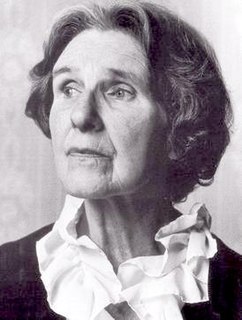A Quote by Adam Clarke
Prayer is not designed to inform God, but to give man a sight of his misery; to humble man's heart, to excite his desire, to inflame his faith, to animate his hope, to raise his soul from earth to heaven.
Related Quotes
It is God's earth out of which man is taken. From it he has his body. His body belongs to his essential being. Man's body is not his prison, his shell his exterior, but man himself. Man does not "have" a body; he does not "have" a soul; rather he "is" body and soul. Man in the beginning is really his body. He is one. He is his body, as Christ is completely his body, as the Church is the body of Christ
He is not the soul of Nature, nor any part of Nature. He inhabits eternity: He dwells in a high and holy place: heaven is His throne, not his vehicle, earth is his footstool, not his vesture. One day he will dismantle both and make a new heaven and earth. He is not to be identified even with the 'divine spark' in man. He is 'God and not man.
When a man sought knowledge, it would not be long before it could be seen in his humbleness, his sight, upon his tongue and his hands, in his prayer, in his speech and in his disinterest (zuhd) in worldly allurements. And a man would acquire a portion of knowledge and put it into practice, and it would be better for him than the world and all it contains - if he owned it he would give it in exchange for the hereafter.
Christianity set itself the goal of fulfilling man’s unattainable desires, but for that very reason ignored his attainable desires. By promising man eternal life, it deprived him of temporal life, by teaching him to trust in God’s help it took away his trust in his own powers; by giving him faith in a better life in heaven, it destroyed his faith in a better life on earth and his striving to attain such a life. Christianity gave man what his imagination desires, but for that very reason failed to give him what he really and truly desires.
When a man’s heart is cold and unconcerned about religion – when his hands are never employed in doing God’s work – when his feet are not familiar with God’s ways – when his tongue is seldom or never used in prayer and praise – when his eyes are blind to the beauty of the kingdom of heaven – when his mind is full of the world, and has no room for spiritual things – when these marks are to be found in a man the word of the Bible is the right word to use about him, and that word is, ‘Dead.’
Strange is the vigour in a brave man's soul. The strength of his spirit and his irresistible power, the greatness of his heart and the height of his condition, his mighty confidence and contempt of danger, his true security and repose in himself, his liberty to dare and do what he pleaseth, his alacrity in the midst of fears, his invincible temper, are advantages which make him master of fortune.
By His gracious condescension God became man and is called man for the sake of man and by exchanging His condition for ours revealed the power that elevates man to God through his love for God and brings God down to man because of His love for man. By this blessed inversion, man is made God by divinization and God is made man by hominization. For the Word of God and God wills always and in all things to accomplish the mystery of His embodiment.
It is obvious that Paul did not regard prayer as supplemental, but as fundamental-not something to be added to his work but the very matrix out of which his work was born. He was a man of action because he was a man of prayer. It was probably his prayer even more than his preaching that produced the kind of leaders we meet in his letters.
If a man really sets his heart upon the will of God, God will enlighten a little child to tell that man what is His will. But if a man does not truly desire the will of God, even if he goes in search of a prophet, God will put into the heart of the prophet a reply like the deception in his own heart.





































